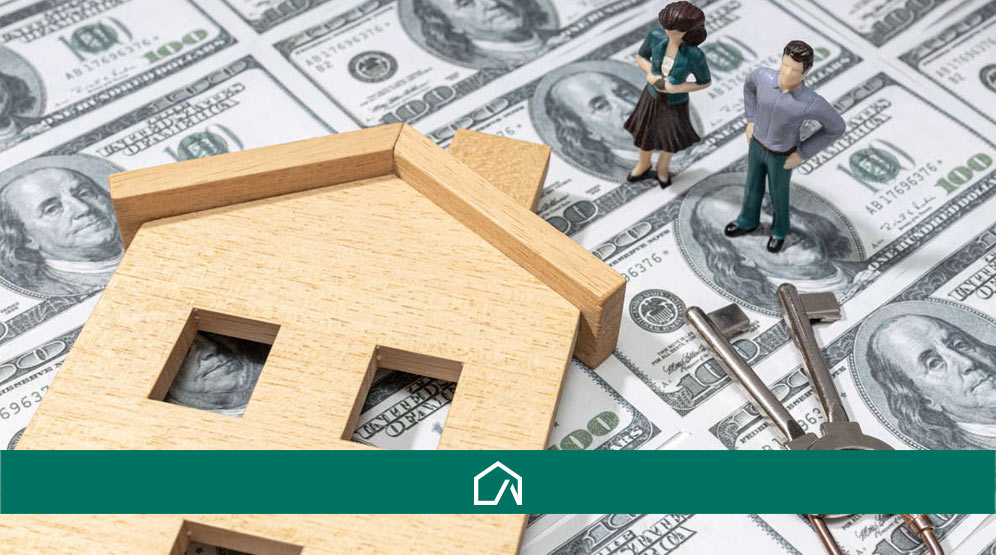With the COVID-19 pandemic and its adverse effects on income and employment security, it is no wonder that some people may have difficulty coping with housing fees and payment of household utility bills. Since many have lost their jobs and the family income is barely enough for food and other basic needs, the need for the government to assist has become very important.
The government organizes a rental and utility assistance program which is administered under the Emergency Rental Assistance Program (ERAP) for many low-income households.
The Emergency Rental Assistance Program (ERAP) is a government-sponsored program that offers rental assistance and relief to low-income households. Households that are dealing with financial rental difficulty due to COVID-19 challenges are usually eligible for this assistance program.
ERAP was established by the Consolidated Appropriations Act of 2021 and was signed into law on February 5, 2021, by Governor Wolf. In signing the act into law, the Department of Human Services (DHS) can now implement and administer the ERAP program by the federal government agency.
The ERAP program assists households in paying up rental arrears that have been accumulated from 2020 and sent to the landlord or property owner.
In this way, the government ensures that households have secured housing and are not evicted or become homeless due to the pandemic and its challenges. The government throws a lot of weight behind this housing relief program to reduce the number of homeless people in the country.
ERAP focuses mainly on low-income households that are faced with rental difficulty by paying their due rents, household utility bills such as trash and sewer removal, electricity, gas and water, energy costs, and other household-related expenses directly to the property owner or utility providers.
The rental assistance covers almost all rental properties like rental units, motels, boarding homes, trailers, and also long-term hotel housing.
Who is Eligible to Apply for ERAP?
To apply for this housing relief program, applicants must adhere to all of the criteria stated by the agency. Also, tenants can apply for themselves and their landlords can do so on behalf of their current tenants to enjoy the relief fund.
Either way, the landlord and tenant must both complete the application process as different parts need to be filled by both parties. Anyone can begin the application process, and the other person will be notified by email to follow up on the application process.
Whichever way, the landlord and tenants must have discussed this application procedure and understood it to be able to get along with no problems during the application. Some of these criteria which need to be met by the tenant include;
- The head of the household or more people within the family must be US citizens to be eligible for this assistance, as the social security number would be requested.
- The household must have previously paid rent on the residential property and currently have difficulty continuing the payment.
- One or more people in the household must currently qualify for unemployment benefits or have a decreased income that fits into the low-income household.
- The household must show proof of having been affected financially either directly or indirectly by the COVID-19 pandemic.
- The household must show the risk of housing instability or possible homelessness due to financial difficulty and possible evictions if help is not rendered.
- The household’s income must be at or below 80% of the Area Median Income (AMI) for the state in which the application is being processed.
For landlord’s application
Landlords and property owners would need to provide some basic documents to enable their tenants to benefit from the ERAP funding program. The landlord must coordinate with the tenants in giving out the necessary information. Some of this information is outlined below.
- A W-9 tax form would need to be filled out online in the ERAP portal of the owner account.
- Lease or tenant application and documents of payments for the last full rental fee, which must also include the tenant’s monthly obligations and unit address.
- Documentation of rent due from a tenant by submitting a monthly rent confirmation form detailing the past due rent still owed by the tenant, including late fees.
- Landlord’s bank details, which need to be filled in the direct deposit information on the ERAP portal.
Note that when all the information has been filled in and before it is submitted, the landlord or property owner would be required to sign the application form and other certifications that will indicate that all that has been uploaded is accurate and not false. Other terms and conditions which the property owner or landlord must adhere to upon signing the agreement for ERAP are as follows:
- The property owner must be ready to accept the rental payment of ERAP and also, the payment must fulfill the tenant’s rents for all the periods covered by the payment.
- The landlord must be willing to waive any late fees due on any rental arrears covered by the ERAP program.
- Monthly rental fees must not be increased at the time of applying for ERAP housing assistance and approximately one year following ERAP payment.
- Eviction for expired lease reasons is not permitted of the tenant on whose behalf the ERAP payment has been made must not be carried out. This should be adhered to for at least one year upon receipt of the payment.
How do I apply for ERAP?
Applications can be submitted online or directly to the county if applications cannot be submitted online. To apply, some information would be required of you, and some of this is:
- Identification information of any member of the household, which may be a driver’s license, state-issued ID card, or passport.
- Current income information for all household members over the age of 18 or unemployment proof for working-class people.
- Tenant lease or landlord-issued letter to show how much your household owes in rent currently.
- Your landlord’s contact information and other details would be requested to ensure that your landlord participates in the application process.
- Proof of utility expenses and bills that need to be paid, like water, electricity, gas, etc.
For more information, please visit: https://home.treasury.gov/policy-issues/coronavirus/assistance-for-state-local-and-tribal-governments/emergency-rental-assistance-program



I am a disabled senior. I worked long hours in healthcare. Now I need help
Hello Carolyn,
The section 8 housing program is designed for the senior citizens, veterans and families with low-income. Check with your local housing authority for eligibility criteria and housing options suitable for your needs.
Me and my family are homeless right now. We can't find an apartment to move into. I'm disabled with multiple different diseases but I'm very lucky that I can still do most things. And tomorrow is my daughter's Birthday; it's just so heart breaking to see my daughter having to spent her 6th birthday in Motel 6. We don't know what to do next. We have looked everywhere for a home for us and are still looking.
We are so sorry to hear this but you can apply for the HUD housing assistance. The HUD provides housing vouchers for people with disabilities in its Housing Choice Voucher Program (HCV) which gives accepted applicants the ability to choose their own home. You can visit the HUD website to find out more about the eligibility http://www.hud.gov
Hello my name is Tina and I need emergency housing fast I'm homeless and have 4 children and it's really been hard for me I've been sick but I still keep looking and I keep getting the same results for housing I never thought it would be this hard to get a home for my children please help me I don't care about the location just need a home for my children, thanks for reading please help us.
if you are at a high risk of becoming homeless, applying for the Continuum of Care (CoC) Program and it offers a quicker response in getting you a home within 30-60 days. To apply, contact your local administering agency or visit here